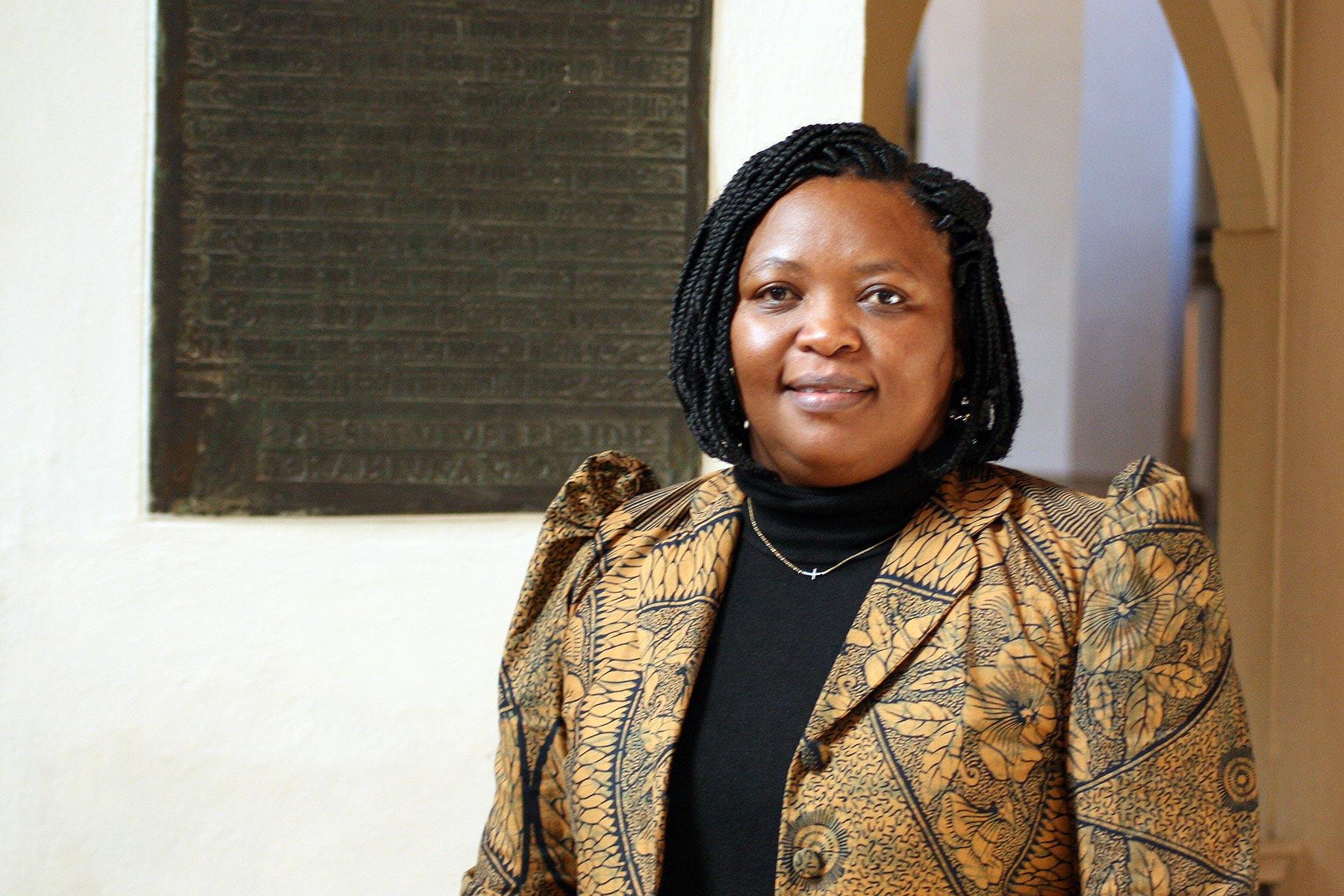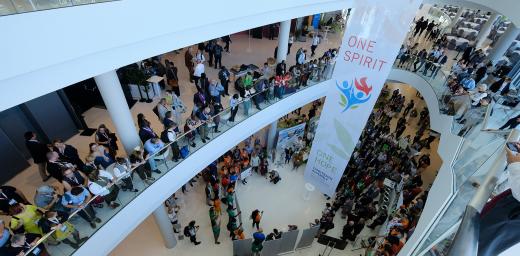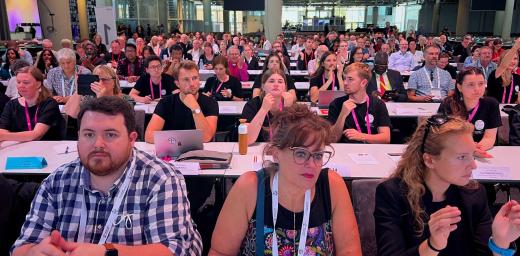Wittenberg: A Lutheran perspective on translating the Bible

Rev. Dr Hoyce Jacob Lyimo-Mbowe was one of the lecturers at the 19th International Seminar for pastors in Wittenberg, Germany. Photo: LWF/A. Weyermüller
Interview with Rev. Dr Hoyce Jacob Lyimo-Mbowe
(LWI) – “I enjoyed the active participation of the pastors – it was a learning process going both ways, taking place in a good atmosphere,” said Rev. Dr Hoyce Jacob Lyimo-Mbowe about her involvement in the 19th International theological Seminar in Wittenberg, Germany.
She is an ordained pastor of the Evangelical Lutheran Church in Tanzania (ELCT) and Dean of Students at Tumaini University Dar es Salaam College, one of the church’s hubs for tertiary education with 2,500 students.
Lyimo-Mbowe spoke with the Lutheran World Information (LWI) on the connection between topics discussed at the seminar titled “Ethical and social elements of Martin Luther‘s theology” and her work in Tanzania.
One of the working sessions during the seminar dealt with the theory and methodology of interpretation of texts and the translation of the Bible. Please tell us something about that discussion.
One of Martin Luther’s achievements was his translation of the Bible into German. It had significant social and theological impacts in his society and was a big step towards a standardized German language.
Luther had to find ways to bring across the message truthfully, understandable and taking into consideration the time and context of his audience. As literal translations of original Hebrew and Greek texts did not prove helpful, he developed what is called the sense-for-sense principle, which is a reader-oriented methodology. The aim of this approach was not only to translate the biblical texts but to make a clear sentence, which can be understood by the readers and meet their needs.
Luther developed what is called the sense-for-sense principle, which is a reader-oriented methodology. The aim of this approach was not only to translate the biblical texts but to make a clear sentence, which can be understood by the readers and meet their needs.
This was not appreciated by Luther’s adversaries and he was heavily criticized for this principle and accused of altering the holy Word of God. In his writing “On Translating: An Open Letter” he defends himself against this criticism and elaborates on the reasons for his approach.
Interestingly, this focuses on the verse from Romans 3:28 on the sola fide – justification by faith alone – a key verse for Luther. The reason to add the term solum or tatum – meaning “only” or “alone” – is to convey the sense of the text. According to Luther, the German dialect and usage at that time demanded that word “alone” be used to clarify the exact sense of the passage.
In Tanzania you were involved in a research project that touched on the translation of the Bible into the language spoken by the Maasai. Could you relate to Luther’s translation method in this context?
The sense-for-sense method is helpful in many instances, also in the Tanzanian context today. However, this methodology has a challenge: to know the exact meaning of what the Bible intends to bring across and to preserve the intended message by using the most fitting expression for this in the targeted language and culture.
From 2015 to 2017 I was a post-doctorate fellow, working on a “Maasai and the Bible” research project. My fieldwork for this took place in Arusha region in Tanzania. I participated in a discussion on gender issues and particularly, polygny and the status of women among the Maasai. Even though polygyny is declining its effect is still vivid in the life of the contemporary Maasai society. My informants, who were men and women, and I read and interpreted biblical texts on creation, polygamy and the rights of women in polygynous relationships.
One of the texts was Exodus 21:10. This text is about the rights of women in polygynous relationships. We used both Kiswahili and Maa Bible versions and discovered that the wording of the text between the two languages set diverging emphases. According to the informants this makes a big difference as far as the rights of women in marital life are concerned. The text speaks about the three basic needs, which a husband is supposed to provide for all his wives.
The three needs are related to food, clothes and sexuality. In the Maa translation the third need has been replaced with "inheritance". The question of the informants was: Why did the translator of this text into Maa language decide to use the word “inheritance” instead of “sexual right” or “sexual intercourse”?
It was the assumption of some informants that the right of women to inheritance is more problematic among the Maasai than sexual rights, sexual intercourse or marital rights. By using the term “inheritance” for a term that is translated mostly as “marital rights” and which includes sexual intercourse in other Bible versions, the translator into Maa language ignores the most vital thing for the Maasai women. The underlying issue of marital rights in the Maasai society is connected to the production of children. To be able to obtain an inheritance a woman has to bear children.
Teaching at the 19th International theological Seminar in Wittenberg, Germany, for the first time, what were your impressions?
Interacting in a group of people coming from 17 different countries provided numerous different perspectives on the topics discussed. I enjoyed the active participation of the pastors there – it was a learning process going both ways, taking place in a good atmosphere.
Preparing the seminar together with Prof. Dr Ľubomír Batka from Slovakia was very inspiring. Having a close look at Luther’s writings and highlighting their relevance for today yielded several insights for me personally as well. We always must discern: what do we take up and what do we set aside. That is hard work but it is definitely worth it.
The 19th International Seminar for pastors took place at the LWF Center in Wittenberg, Germany, from 2 to 16 March. The theme of the seminar was “The Ethical und Social elements of Martin Luther´s Theology”. It was led by Prof. Dr Ľubomír Batka (Slovakia) and Rev. Dr Hoyce Jacob Lyimo-Mbowe (Tanzania). Twenty pastors from member churches of the Lutheran World Federation in 17 countries participated.





